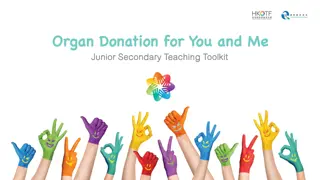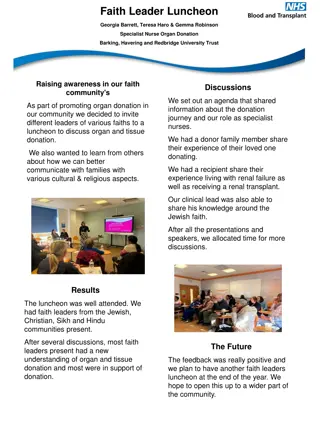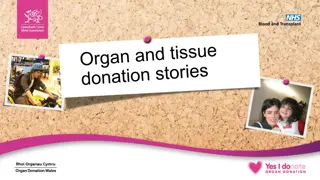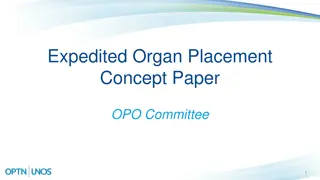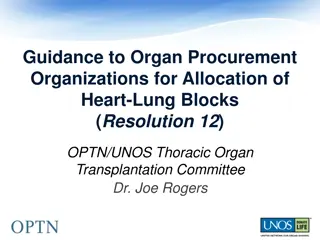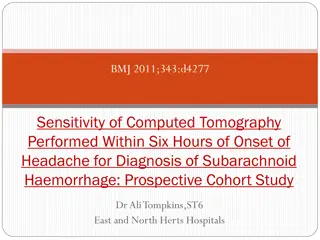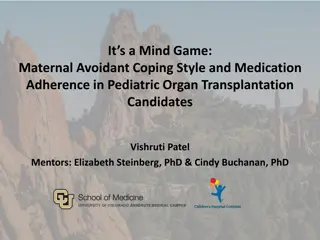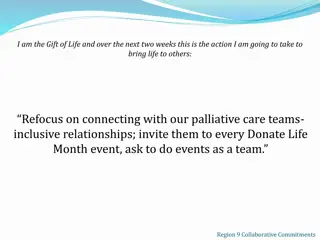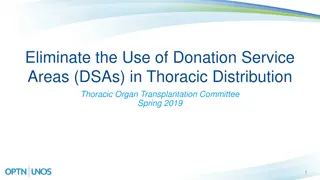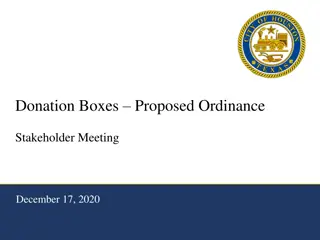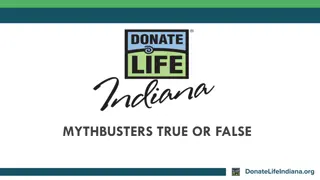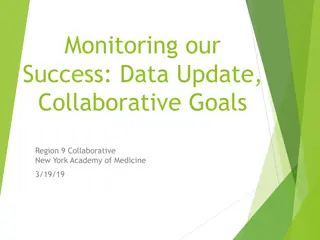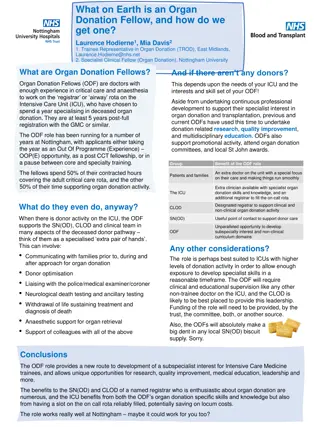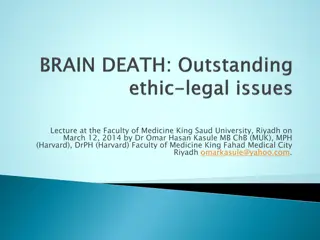Ethical Considerations in Organ Donation for Neurologically-Aware Patients
This information highlights the process of honoring the desire of neurologically-aware patients to donate organs after circulatory death. It discusses the referral, legal authorization, triggers for consideration, and ethical aspects involved in approaching and discussing organ donation with the patient and their family. The importance of including communicative patients in the decision-making process and the involvement of the hospital Ethics Committee are emphasized.
Download Presentation

Please find below an Image/Link to download the presentation.
The content on the website is provided AS IS for your information and personal use only. It may not be sold, licensed, or shared on other websites without obtaining consent from the author.If you encounter any issues during the download, it is possible that the publisher has removed the file from their server.
You are allowed to download the files provided on this website for personal or commercial use, subject to the condition that they are used lawfully. All files are the property of their respective owners.
The content on the website is provided AS IS for your information and personal use only. It may not be sold, licensed, or shared on other websites without obtaining consent from the author.
E N D
Presentation Transcript
Neurologically-Aware Donors: Donation After Circulatory Death No l Stout, LPN, CTBS Myrna Garcia, BA Family Support Coordinators
Objectives: Provide context for honoring the neurologically-aware patient s desire to donate organs within a non-traditional clinical picture. Provide information surrounding the referral, discussion and legal authorization from neurologically-aware patients for organ donation after circulatory death.
Neurologically-Aware Patients Examples: High cervical spine fractures; quadriplegia Degenerative neurological diseases in the end- stages; Amyotrophic Lateral Sclerosis, Multiple Sclerosis, Huntington s Chorea Ventilator dependent and family/patient have chosen to withdraw life-sustaining measures
Consider Neurologically-Aware patients as potential referrals! General Triggers: Vented, GCS <5, heart-beating and/or family planning to d/c life-sustaining interventions Non-traditional Triggers to consider in addition: Ventilator dependent, GCS higher than 5, likely to die immediately after extubation, any mention of donation by family or patient
Process As in all DCD discussions, decision to withdraw life-sustaining measures must already have been made by the family OPO and medical staff meet to determine the best way to discuss organ donation with family If patient is communicative, he/she must be included in the discussion
Ethical Considerations The hospital Ethics Committee may review the case. The committee felt it appropriate for the intensivist to speak with the patient regarding withdrawal of care. Once the patient, family and Intensivist have agreed upon the withdrawal of care, the hospital Ethics Committee can permit the OPO staff to approach the patient.
Discussion Assess patients method of communication and neurological state Family members/hospital staff involvement Assess sedation level Determine patient s understanding of their condition Determine who will be in room for donation discussion Thorough staff huddle prior to approach
Authorization No difference from traditional paperwork process Confirm Registry status Complete Written Authorization, if not registered Obtain DCD Procedures Authorization Heparin administration
Case Study 56 year old female, registered donor admitted s/p fall from deck CT scan revealed severe cord laceration at C2 level with contusion from C1-C3 No acute intracranial injury identified Family given prognosis of vent dependent quadriplegia Withdrawal of care brought up by family
The Intensivist Conversation Family/Family Support Coordinator present Once for yes, twice for no Neurological state assessed Confirming pt s understanding of ventilator- dependent quadriplegia Discussed life-sustaining measures will be withdrawn Clarify that this would result in her death
The OPO Approach Family and hospital staff present Confirm that at the time of death, organ donation would occur Authorization completed by husband Patient included in process Questions answered
The Recovery Comfort care measures per hospital protocol Significant Hospital OR staff preparation Withdrawal of care in OR or ICU per patient/family wishes No pre-OR prep done
Case Collaboration OR OR Director Charge ICU RN Chaplain ICU MD HD Donor Alliance Staff Family/ ICU Director Patient
What have we learned? Early Referral is preferred Conversations early and often Be proactive Involve the right people Collaboration is key


